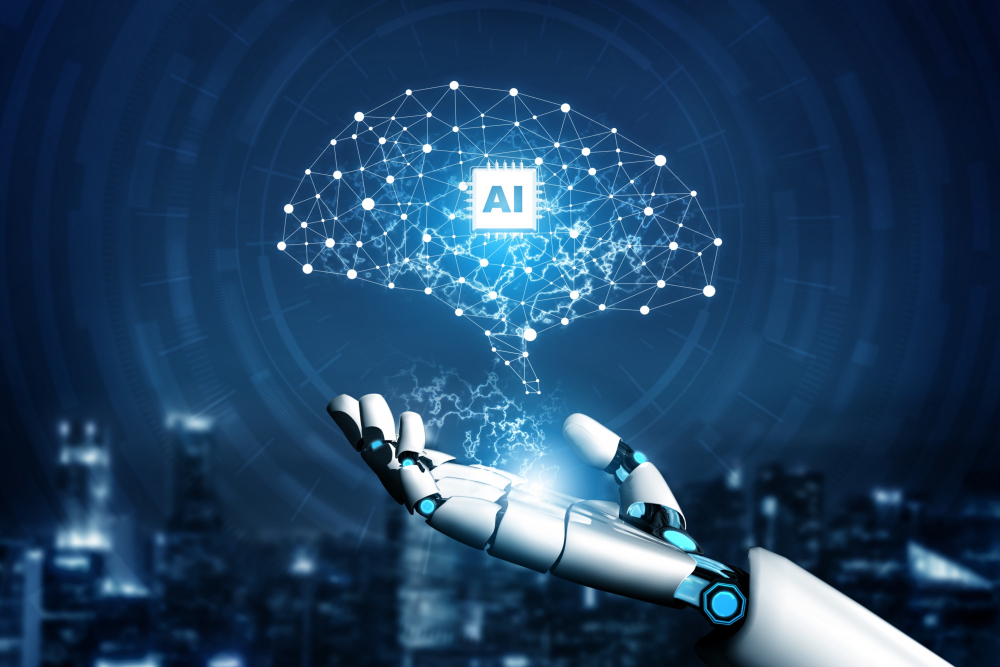The integration of Generative Artificial Intelligence (Gen AI) into mobile app development is transforming the landscape, offering unprecedented advancements in creativity, personalization, and user engagement. This cutting-edge technology leverages machine learning, deep learning, and neural networks to generate content that is both unique and responsive to user prompts. In this blog, we delve into the evolving role of Gen AI in the mobile app industry, exploring its applications, associated challenges, and the promising future it holds for both Android and iOS platforms.
Significant Use Cases of Generative AI in Mobile App Development
Enhanced Content Creation
– Personalized Media: Gen AI can automatically generate text, images, and videos tailored to user preferences, enhancing content marketing and social media strategies.
– Dynamic Recommendations: Mobile apps leverage Gen AI to provide personalized content recommendations, boosting user engagement and satisfaction.
Intuitive App Design with Gen AI
– Custom Designs: AI algorithms assist designers in creating custom logos, graphics, and UI elements, making apps more attractive and user-friendly.
– Streamlined Design Processes: By automating routine design tasks, Gen AI frees up creative professionals to focus on more complex and innovative work.
Realistic Effects and Photo Enhancements
– Photo Editing: Mobile apps integrate Gen AI for advanced photo editing, allowing users to apply creative filters and correct imperfections effortlessly.
– Enhanced Visuals: AI-generated realistic effects improve photo quality, catering to the aesthetic demands of users.
Collaborative Virtual Assistants
– Improved Interaction: Gen AI empowers chatbots to understand and generate human-like responses, facilitating better user interaction.
– Customized Assistance: AI chatbots offer personalized advice, perform tasks, and handle inquiries, significantly enhancing the user experience.
Innovations in Gaming with Gen AI
– Procedural Content Generation: Game developers use Gen AI to create adaptive environments and narratives, enriching the gaming experience.
– Dynamic Storytelling: AI algorithms generate content that evolves based on player interactions, offering a unique experience for each user.
Behavior Analysis for Personalized User Experiences
– Insight Generation: Gen AI analyzes user behavior and preferences to offer tailored recommendations and content.
– Enhanced User Engagement: By understanding and responding to individual preferences, apps can significantly increase user loyalty and satisfaction.
Key Challenges in Implementing Generative AI
Data Privacy and Security Concerns
– Protection Measures: Developers must implement strong data security protocols and comply with privacy regulations to protect user data.
– Transparency: Clear communication about data use and ensuring user data is handled responsibly are essential for building trust.
Ethical Considerations
– Bias Mitigation: Developers need to assess and address biases in AI algorithms to promote fairness and inclusivity.
– Diversity Enhancement: Continuous efforts are necessary to ensure AI-generated content reflects a wide range of perspectives.
User Experience and Adoption
– Interface Design: Apps must feature intuitive interfaces that simplify interactions with AI-generated content.
– Feedback Incorporation: Regular user feedback is crucial to refine AI features and ensure they meet user needs effectively.
The Future of Gen AI in Mobile App Development
The trajectory of Gen AI in mobile app development is set towards more innovative and efficient uses. Here are some developments to look forward to:
– Advancements in AI Models: Continuous improvements in AI algorithms will enable the generation of more realistic and diverse content.
– Edge Computing: With the rise of on-device processing, mobile apps will increasingly handle AI computations locally, enhancing performance and privacy.
– Increased Domain-Specific Applications: Gen AI will see broader application across various fields such as design, music, and virtual reality, driving industry-specific innovations.
– Enhanced Human-AI Collaboration: Future apps will likely focus on tools that facilitate seamless collaboration between users and AI, enhancing creative processes and outputs.
Conclusion
The integration of Gen AI in mobile app development not only elevates user experience through customization and interactivity but also offers developers a toolkit for innovation and efficiency. While the path forward includes challenges such as data privacy, ethical AI use, and user adoption, the potential benefits make Gen AI a transformative force in the mobile app industry. Developers and businesses ready to embrace and adapt to these changes will find themselves at the forefront of a digitally empowered future, driving growth and creativity in the digital age.


